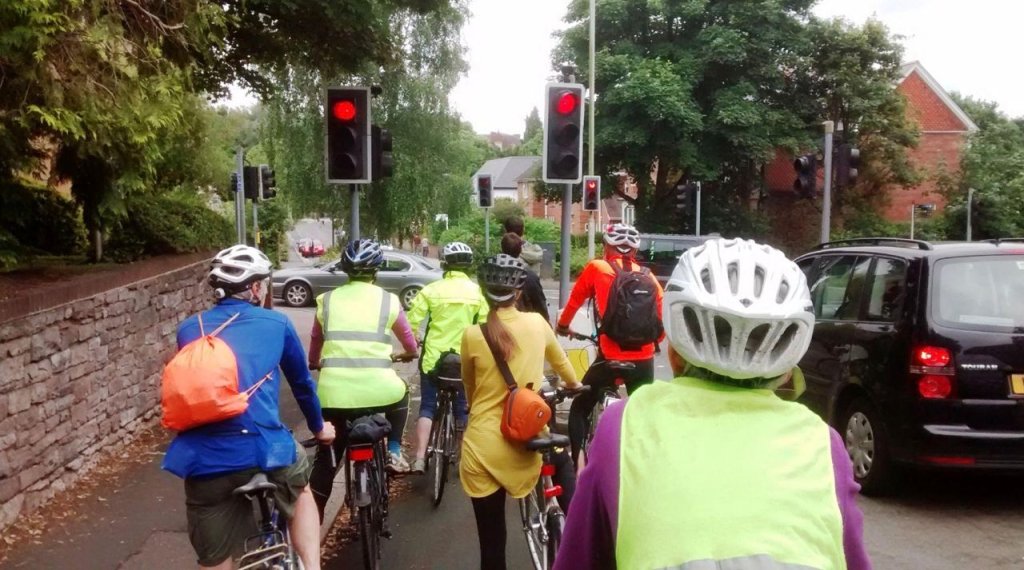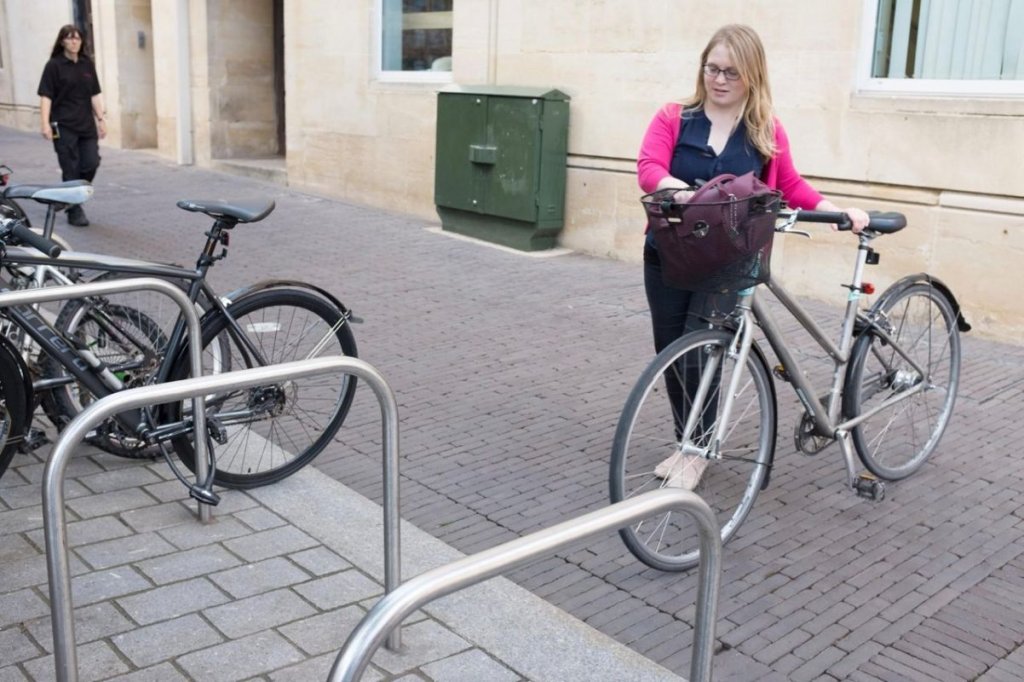The UK government has been vocal in their support for electric cars as THE carbon-free future for travel. The transport carbon challenge sorted!
Or is it?
The generously-funded motor lobby is powerful at getting its message across. We could be forgiven for thinking that electric cars are the answer to fully decarbonising our travel, and building a better future.
A moment’s thought however shows this falls far short of the future we need to create for ourselves and our children.

Why so down on electric cars?
Well, firstly, not many can afford an electric vehicle. They remain a privilege for the few. Once bought, however, they’re cheap to run and so there’s every incentive to make every journey by car, increasing congestion.
More importantly, the world can’t afford it. Their manufacture is carbon intensive and requires scarce resources for batteries. Thinking people will agree that using a 2000kg vehicle to transport one 75kg person is not a wise use of resources.
Replacing fossil-fuelled cars with electric cars, may be a small part of the future but does not help the 1 in 4 of households without a car, does nothing to ease congestion, does nothing to bear down on the carnage on our roads that see *five* people killed every day, does nothing to make it safe for our children to navigate our cities by themselves, does nothing to break the obesogenic design of our towns, does not eliminate the lung clogging particulates from tyres and brakes nor electric cars’ carbon-intensive production.
Is this a council of despair?
Well, it might be if we didn’t already have a machine that fights climate change, already owned by many, usable by children, adults, abled and disabled alike, a machine that doesn’t kill people by the dozens every week, a machine whose weight doesn’t damage roads ( £40m/year is spent on potholes in Devon alone).
You know what this machine is, don’t you? You’ve probably already used one: the bicycle. The majority of car journeys are under 5 miles and a cycle will let you travel these in 30minutes powered by a slice of toast and a piece of fruit.
COP26 has rightly brought us fresh reminders of the existential crisis we face as a species and a planet, how we need to make changes in how we travel and heat our homes. Listening to these speeches it’s difficult to remain positive. However, I am driven by a positive and achievable vision for the future of the South West.
What does this future look like?
A future where we’ve tackled the decarbonisation of travel by enabling people of all ages to move efficiently, cleanly and safely without using fossil fuels. A future where there’s equitable space on our highways for people traveling by foot, by scooter, by wheelchair, bus or cycle and where we’ve reversed the dominance of cars on our streets. This is the clean, safe, fit and friendly city I am working towards.

“I don’t cycle because it’s not safe”.
Cities across the UK are finding that they can make it safe to cycle: protected cycle paths next to busy roads, removing through traffic from residential areas and reduced traffic speeds (why is 20 mph not yet a default in Devon?) create an environment where children and adults alike can switch everyday short journeys to walking, scooting or cycling.
Recently we’ve seen pushback against really modest changes that enable low carbon travel by making it safer to cycle, scoot or walk. The argument from one councillor that a small inconvenience for a few drivers must prevail over safer journeys for school children has no place in a forward looking society. We must embrace changes that help decarbonise our lives and avert the worst consequences of climate change.
This is a generational opportunity to change our communities for the better. Let’s not mess this up.
So, let’s not get seduced by the motor lobby into narrowly thinking electric cars are the only answer. Instead let’s embrace the shift away from cars towards active travel. We’ll be a healthier and happier society from doing so. And, yes, for those who really can’t walk, scoot, cycle or take the bus, it’ll be a better place to drive your electric car.
Mike Walton, Chair, Exeter Cycling Campaign











